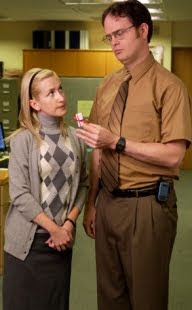Despite telling myself that enough was enough now the election was over, I've had a difficult time withdrawing from the Twitterverse; it's gotten so bad I've started to use words like... Twitterverse. It's only a matter of time before I start talking about the blogosphere and with it enter a cycle of self-loathing that results in me disappearing up my own... well, you know. It's a great way to meet different people with different ideas but every so often I have to shake my head and remind myself that the inhabitants of this social networking world aren't necessarily representative of the real world. In some ways this is comforting because there are a lot of angry people out there.
Last week's 'outrage' revolved around the 55% rule proposed by the new Liberal Democrat / Conservative coalition. The proposal is that it will take a 55% vote to dissolve parliament - a power currently wielded by the Prime Minister alone. Cue much indignation from people prompted by woefully inaccurate reports (from the BBC amongst others) that this meant it would now require more than a simple majority to vote out the government. Not true of course, it still only requires a simple majority on a "no confidence" vote to force the government to resign, like it always has. The difference is that the onus would then be on parliament to form a new government without resorting to a general election.
I'll not go into the full argument because I'm spent just thinking about it, suffice (for me anyway) to say that instead of one person being able to call an election it would take the cooperation of two parties; the opposition is at no greater disadvantage than it ever was. The 55% to dissolve may seem unusual but is similar to that of a fixed term parliament, where dissolution is seen as an exceptional event rather than something that can be engineered. Take for example the Scottish parliament, which requires a 66% vote for dissolution.
Neither have I the inclination for a long and I suspect rambling discussion on the advantages of such a system, personally I have my doubts, I only mention it because fixed term parliaments were in the Liberal Democrat and Labour manifestos. True, the coalition isn't a perfect representation, it can after all dissolve if both parties agree, but if Labour supporters are going to cry "constitutional scandal" whilst ignoring the plans of their own party then it's going to be an irritating five years – assuming the government, or do I mean parliament, lasts that long.
Revenge of the AI GriefSexBot
1 day ago






